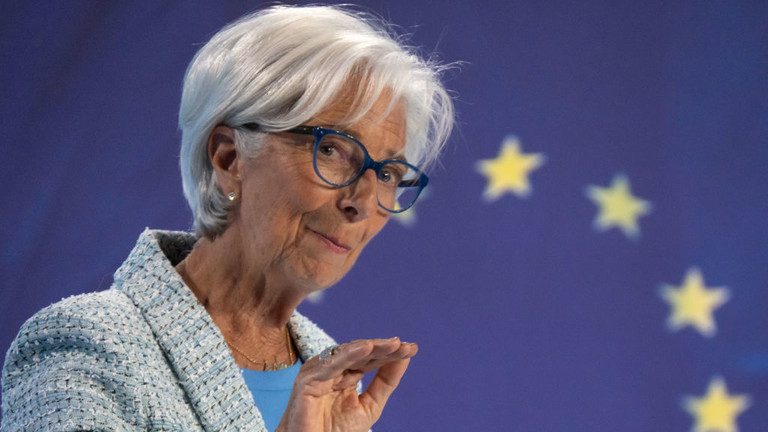The European Central Bank (ECB) has reduced interest rates for the first time in almost five years, underscoring that the battle against inflation in the eurozone is far from over. On Thursday, the ECB announced a quarter percentage point cut, bringing the benchmark rate in the 20 countries using the euro down to 3.75% from a peak of 4%, where it had remained since September. The central bank did not signal whether further rate reductions might follow in July.
In May, eurozone inflation surged more than anticipated, reaching 2.6%, up from 2.4% in April, according to recent data. Core inflation, which excludes the often-volatile food and energy prices, also climbed as wages increased rapidly.
This uptick prompted the ECB to adjust its inflation forecast for the year, raising it to 2.5% from the 2.3% predicted in March. The bank stated on Thursday that it intends to maintain interest rates at “sufficiently restrictive” levels for as long as necessary to bring inflation back to the 2% target.
“Despite the progress over recent quarters, domestic price pressures remain strong as wage growth is elevated, and inflation is likely to stay above target well into next year,” the ECB said in a statement.
ECB President Christine Lagarde emphasized the central bank’s commitment to a data-driven, meeting-by-meeting strategy. “We are not pre-committing to a particular rate path,” Lagarde stated to reporters.
The ECB’s rate cut comes on the heels of a similar move by the Bank of Canada earlier this week. This year, both Sweden and Switzerland have also announced rate cuts.
In contrast, the US Federal Reserve is expected to keep rates steady next week at a 23-year high range of 5.25% to 5.5% amid ongoing inflation pressures. Similarly, the Bank of England is anticipated to maintain its bank rate at a 16-year high of 5.25% during its upcoming meeting on June 20.


















